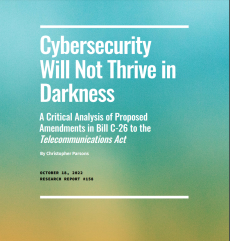Home-Grown Radicalization: Where’s the Solution?
March 10, 2014
Canada is known globally for many things, a strong commitment to multiculturalism and a robust welfare state being just two of these accolades. A rapidly increasing growth in the former achievement and a declining ability in the latter to meet these new demands, however, have created new and pressing issues in regards to national policy. One of the most publicized and discussed issues that has arisen out of the past decade revolves around the notion of the “homegrown terrorist,” referring to individuals who have chosen violent means, or the financial support thereof, to achieve their varying ideological ends. Canadian policy makers and law enforcement officials have the ability to significantly reverse this growing trend.
Read full article






